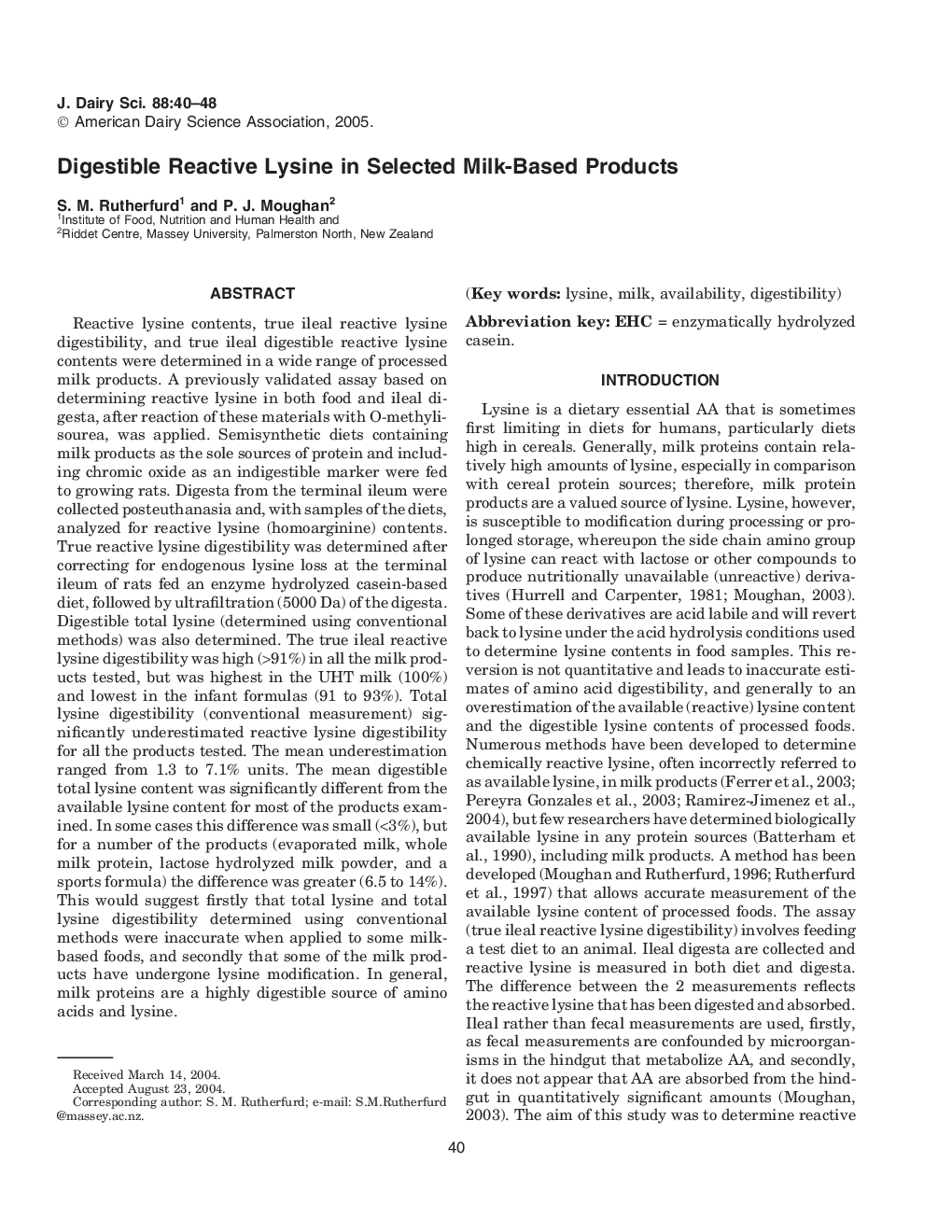| Article ID | Journal | Published Year | Pages | File Type |
|---|---|---|---|---|
| 8981253 | Journal of Dairy Science | 2005 | 9 Pages |
Abstract
Reactive lysine contents, true ileal reactive lysine digestibility, and true ileal digestible reactive lysine contents were determined in a wide range of processed milk products. A previously validated assay based on determining reactive lysine in both food and ileal digesta, after reaction of these materials with O-methylisourea, was applied. Semisynthetic diets containing milk products as the sole sources of protein and including chromic oxide as an indigestible marker were fed to growing rats. Digesta from the terminal ileum were collected posteuthanasia and, with samples of the diets, analyzed for reactive lysine (homoarginine) contents. True reactive lysine digestibility was determined after correcting for endogenous lysine loss at the terminal ileum of rats fed an enzyme hydrolyzed casein-based diet, followed by ultrafiltration (5000Â Da) of the digesta. Digestible total lysine (determined using conventional methods) was also determined. The true ileal reactive lysine digestibility was high (>91%) in all the milk products tested, but was highest in the UHT milk (100%) and lowest in the infant formulas (91 to 93%). Total lysine digestibility (conventional measurement) significantly underestimated reactive lysine digestibility for all the products tested. The mean underestimation ranged from 1.3 to 7.1% units. The mean digestible total lysine content was significantly different from the available lysine content for most of the products examined. In some cases this difference was small (<3%), but for a number of the products (evaporated milk, whole milk protein, lactose hydrolyzed milk powder, and a sports formula) the difference was greater (6.5 to 14%). This would suggest firstly that total lysine and total lysine digestibility determined using conventional methods were inaccurate when applied to some milk-based foods, and secondly that some of the milk products have undergone lysine modification. In general, milk proteins are a highly digestible source of amino acids and lysine.
Related Topics
Life Sciences
Agricultural and Biological Sciences
Animal Science and Zoology
Authors
S.M. Rutherfurd, P.J. Moughan,
